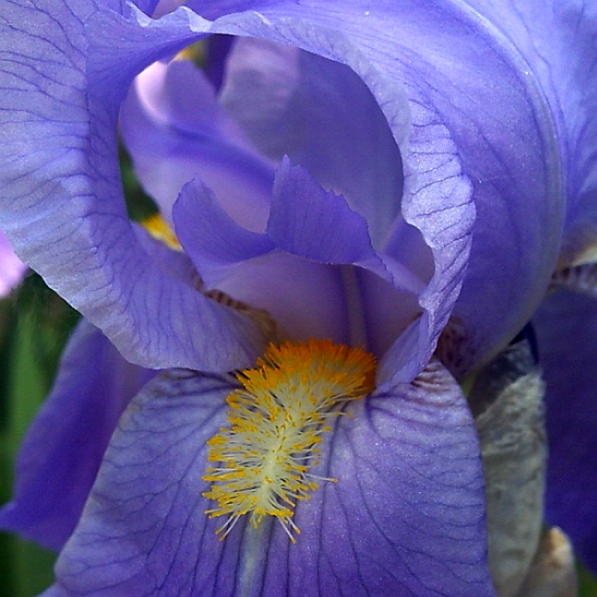The most terrifying thing is to accept oneself completely.
I am astonished, disappointed, pleased with myself. I am distressed, depressed, rapturous. I am all these things at once, and cannot add up the sum. I am incapable of determining ultimate worth or worthlessness; I have no judgment about myself and my life. There is nothing I am quite sure about. I have no definite convictions – not about anything, really. I know only that I was born and exist, and it seems to me that I have been carried along. I exist on the foundation of something I do not know. In spite of all uncertainties, I feel a solidity underlying all existence and a continuity in my mode of being.
The world into which we are born is brutal and cruel, and at the same time of divine beauty. Which element we think outweighs the other, whether meaninglessness or meaning, is a matter of temperament. If meaninglessness were absolutely preponderant, the meaningfulness of life would vanish to an increasing degree with each step in our development. But that is – or seems to me – not the case. Probably, as in all metaphysical questions, both are true; life is – or has – meaning and meaninglessness.
Carl Jung in Memories, Dream, Reflections.
What then did these people do in order to achieve the progress that freed them?
As far as I could see, they did nothing (wu wei), but let things happen, for, as Master Lao Tzu teaches in our text, the Light circulates according to its own law, if one does not give up one’ s accustomed calling. The art of letting things happen, action in non-action, letting go of oneself, as taught by Master Eckhart, became a key to me, with which I was able to open the door to the “Way”. The key is this: we must be able to let things happen in the psyche.
For us, this becomes a real art of which few people know anything. Consciousness is forever interfering, helping, correcting, and negating, and never leaving the simple growth of the psychic processes in peace. It would be a simple enough thing to do, if only simplicity were not the most difficult of all things. It consists solely in watching objectively the development of any fragment of fantasy. Nothing could be simpler than this, and yet right here the difficulties begin.
Apparently no fantasy fragment is at hand – yes there is one, but it is too stupid! Thousands of good excuses are brought against it: one cannot concentrate on it; it is too boring; what could come out of it? It is “nothing but”, etc. The conscious raises prolific objections, in fact, it often seems bent upon blotting out the spontaneous fantasy-activity despite the intention, nay, the firm determination of the individual, to allow the psychic processes to go forward without interference. In many cases there exists a veritable spasm of the conscious.
Carl Jung in The Secret of the Golden Flower.
If we wish to stay on the heights we have reached, we must struggle all the time to consolidate our consciousness and its attitude. But we soon discover that this praiseworthy and apparently unavoidable battle with the years leads to stagnation and desiccation of soul. Our convictions become platitudes ground out on a barrel-organ, our ideals become starchy habits, enthusiasm stiffens into automatic gestures. The source of the water of life seeps away. We ourselves may not notice it, but everybody else does, and that is even more painful.
If we should risk a little introspection, coupled perhaps with an energetic attempt to be honest for once with ourselves, we may get a dim idea of all the wants, longings, and fears that have accumulated down there – a repulsive and sinister sight. The mind shies away, but life wants to flow down into the depths. Fate itself seems to preserve us from this, for each of us has a tendency to become an immovable pillar of the past.
Carl Jung in Symbols of Transformation.
Jung’s basic attitude to everything that happened was he preferred to let things develop in their own way. “Don’t interfere!” was one of his guiding axioms, which he observed so long as a waiting-and-watching attitude could be adopted without danger. Situations in which interference was obviously required were decided exceptions.
This attitude of Jung’s was the very reverse of indolence; it sprang from a curiosity about life and events that is characteristic of the researcher. They happened and he let them happen, not turning his back on them but following their development with keen attention, waiting expectantly to see what would result. Jung never ruled out the possibility that life knew better than the correcting mind, and his attention was directed not so much to the things themselves as to that unknowable agent which organizes the event beyond the will and knowledge of man. His aim was to understand the hidden intentions of the organizer, and, to penetrate its secrets, no happening was too trivial and no moment too short lived.
Respect for life also characterized Jung’s analytical work. Worried or depressed patients hoped in vain for exhortation or comfort. Jung gave them something else: he wanted to get them to integrate the necessary suffering into their lives, to accept and bear it as part of their wholeness – for without darkness and sorrow there is no life. To soothe it away or exclude it would rob them of a vital experience, while the core of the depression would remain and soon enough provoke new suffering.
Jung’s attitude and his demand for wholeness were not always easy to fathom, nor was it a simple thing to follow the way he pointed out, the way of individuation and destiny. No wonder that now and then the unconscious lent a helping hand with its images.
Jung followed the downward movement of life if it was in keeping with the intrinsic truth of the moment. Yet he could experience joy whenever it came his way as few were able to, and wholeheartedly joined in the joy of others. Only when one got to know him better, over the years, did one discover that he – a true Till Eulenspiegel – was never without the canker of secret care, for he knew the play of life’s pendulum, the inevitable compensation of “high” by “low”.
Have you “suffered a success?” he would ask at a suitable moment, half mocking, half amused. He saw where it would end. Suffering accepted can gradually change into strength, composure, serenity; joy that remains heedless can change all too quickly and all too often into sorrow and restlessness. Suffering is a challenge, enforcing self-transformation; joy is not, and it does so much more rarely.
Aniela Jaffe in From the Life and Work of C. G. Jung.

